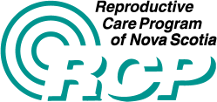
Lyme Disease and Pregnancy – A number of resources are available for health professionals related to Lyme disease and can be accessed on the following websites:
 CAPWHN – The Canadian Association of Perinatal and Women’s Health Nurses (CAPWHN) has released a position statement on Cultural Safety/Humility. The position statement was authored by members of the Advocacy and Health Policy Committee in collaboration with the Canadian Indigenous Nursing Association. CAPWHN is the first Canadian non-Indigenous nursing specialty association to adopt a position statement in response to the Truth and Reconciliation Commission of Canada’s Calls to Action, focused on cultural safety and humility while caring for Indigenous people.
CAPWHN – The Canadian Association of Perinatal and Women’s Health Nurses (CAPWHN) has released a position statement on Cultural Safety/Humility. The position statement was authored by members of the Advocacy and Health Policy Committee in collaboration with the Canadian Indigenous Nursing Association. CAPWHN is the first Canadian non-Indigenous nursing specialty association to adopt a position statement in response to the Truth and Reconciliation Commission of Canada’s Calls to Action, focused on cultural safety and humility while caring for Indigenous people.
CAPWHN is hosting its National Conference in Halifax on October 12-14th, 2017, titled: “A Gateway for Diversity, Equity, and Innovation”. Conference participants will be able to choose from over 50 abstract presentations and specialty sessions focusing on innovative practices and cutting edge research. The program will include dynamic plenary sessions with Dr. Marsha Campbell-Yeo about partnering with parents to improve pain care for newborns, Dr. Natalie Rosen addressing perinatal sexual health for women and couples, and a ‘panel plenary’ led by experienced clinicians and advocates working to improve reproductive health for imprisoned women and trans individuals. The conference will close with a compelling keynote session by Cheyenne Joseph on Aboriginal Women’s Health. The conference theme also aligns well with principles within CAPWHN’s new Cultural Safety/Humility position statement.
Fetal Health Surveillance Online Manual - On June 1, 2017, The Canadian Fundamentals of Fetal Health Surveillance online manual moved from the Centre of Excellence in Simulation Education and Innovation (CESEI) to the University of British Columbia Continuing Professional Development (UBC CPD).
With the move, you will notice some positive changes to the online manual, including:
- Self-registration through the UBC CPD site http://ubccpd.ca/fhs-online-manual;
- A user-friendly learning management system compatible with all electronic devices; and
- Easier navigation though the lessons.
 The manual continues to be based on the SOGC FHS Clinical Practice Guideline and is the standard for FHS education in Canada. Access to the manual continues to be free to all Canadian care providers who are participating in fetal health surveillance. The course is also undergoing accreditation review for MOC-Section 1 and Mainpro+ certification. It is anticipated that physicians will soon be able to claim credits for time spent during this self-learning activity. If you had an old CESEI account and you log in to it, you will be directed to the UBC CPD website. As of June 30, 2017, all existing CESEI accounts will be decommissioned. You must self-register for the course through the link provided above and create a new account on the UBC CPD eLearning site in order to access the material. For more information, please contact cpd.online@ubc.ca
The manual continues to be based on the SOGC FHS Clinical Practice Guideline and is the standard for FHS education in Canada. Access to the manual continues to be free to all Canadian care providers who are participating in fetal health surveillance. The course is also undergoing accreditation review for MOC-Section 1 and Mainpro+ certification. It is anticipated that physicians will soon be able to claim credits for time spent during this self-learning activity. If you had an old CESEI account and you log in to it, you will be directed to the UBC CPD website. As of June 30, 2017, all existing CESEI accounts will be decommissioned. You must self-register for the course through the link provided above and create a new account on the UBC CPD eLearning site in order to access the material. For more information, please contact cpd.online@ubc.ca
What’s New at RCP – RCP bids farewell to Marilyn Muise after many years of faithful service to the program as Financial / Administrative Coordinator. We cannot thank Marilyn enough for her years of hard work and dedication. Marilyn’s retirement plans include enjoying summers in Cape Breton and winters traveling the world with her husband, all the while hosting visits from their many friends. We at RCP will miss her greatly but wish her much happiness and all the best in her retirement.
Any of you who have had the opportunity to work with Marilyn will know that she is irreplaceable, but the RCP staff feels certain that Joanne Ings is up to the task! We are so pleased to welcome Joanne as RCP’s new Program Administrative Coordinator; she brings a wealth of knowledge and experience to the role. Joanne’s contact details are: (902) 470-7344 or joanne.ings@iwk.nshealth.ca
 SOGC Develops a New Pregnancy Tool - The Society of Obstetricians and Gynaecologists of Canada (SOGC) has released an exciting new website - PregnancyInfo.ca. The site is focused on informing women who are pregnant or planning to become pregnant about the relevant evidence-based information they need for a healthy pregnancy. The site offers information and facts related many important topics such as: nutrition, vaccination and the impact of the environment on pregnancy. The website incorporates all SOGC obstetric recommendations, which are based on evidence-based clinical practice guidelines that set the standard of excellence for obstetrical and gynaecological practice in Canada. Research shows time and time again that when pregnant women are well informed about their needs and the needs of their growing baby, they will have healthier full-term pregnancies.
SOGC Develops a New Pregnancy Tool - The Society of Obstetricians and Gynaecologists of Canada (SOGC) has released an exciting new website - PregnancyInfo.ca. The site is focused on informing women who are pregnant or planning to become pregnant about the relevant evidence-based information they need for a healthy pregnancy. The site offers information and facts related many important topics such as: nutrition, vaccination and the impact of the environment on pregnancy. The website incorporates all SOGC obstetric recommendations, which are based on evidence-based clinical practice guidelines that set the standard of excellence for obstetrical and gynaecological practice in Canada. Research shows time and time again that when pregnant women are well informed about their needs and the needs of their growing baby, they will have healthier full-term pregnancies.
SOGC Adopts ‘Choosing Wisely Canada’ Initiative - The Society of Obstetricians and Gynaecologists of Canada (SOGC) has released a top-ten list of commonly used obstetrical and gynecologic tests and treatments which an expert review committee has determined usually do not add value to the care of patients. The list is part of the Choosing Wisely Canada initiative which encourages clinicians and patients to engage in conversations to avoid unnecessary tests while making smart and effective choices supporting high quality care. The majority of the items on the list are items that SOGC expert committees have reviewed and that the SOGC has identified in its published Clinical Practice Guidelines as tests and treatments that evidence indicates should not be done in routine practice. They were selected from a longer list that was put out to the entire membership. Choosing Wisely Canada is organized by a team of leading Canadian physicians, in partnership with the Canadian Medical Association. It is already supported by several medical associations and many other specialty societies in Canada.
SOGC Supports Gender- Inclusivity - The Society of Obstetricians and Gynaecologists of Canada (SOGC) has made a commitment to develop a Gender-Inclusive Language Policy to promote sensitivity to LGBTQ+ individuals in both health care research and practice. This is in response to a recent study that cites 43.9% of transgender people in Ontario have reported an unmet health care need in the past year alone due, in part, to negative experiences with health care providers and a lack of access to transition-related services.
The Gender-Inclusive Language Policy will:
- set a standard for gender-inclusive language
- communicate appropriate pronoun usage while addressing members of LGBTQ+ communities
- offer suggestions for how to communicate with and about transgender, cisgender and gender non-binary individuals in a manner that is inclusive to all
- aid health care providers and researchers in the nuances of language related to binary sex and non-binary gender
- be available to SOGC staff as well as in our print and digital publications
Feel free to forward/share the RCP’s e-News with your colleagues.
If you have any questions or comments, please contact the RCP office at rcp@iwk.nshealth.ca.
Manage your RCP e-News subscriptions


